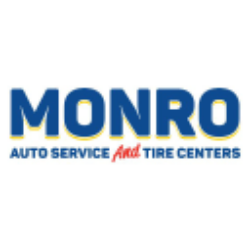
FMP

Monro, Inc.
MNRO
NASDAQ
Monro, Inc. provides automotive undercar repair, and tire sales and services in the United States. It offers replacement tires and tire related services; routine maintenance services on passenger cars, light trucks, and vans; products and services for brakes; mufflers and exhaust systems; and steering, drive train, suspension, and wheel alignment. The company also provides automotive undercar repair services, including tire replacement sales, and tire related service. The company operates its stores under the brand names of Monro Auto Service and Tire Centers, Tire Choice Auto Service Centers, Mr. Tire Auto Service Centers, Car-X Tire & Auto, Tire Warehouse Tires for Less, Ken Towery's Tire & Auto Care, Mountain View Tire & Auto Service, Tire Barn Warehouse, and Free Service Tire & Auto Centers. As of March 26, 2022, it operated 1,304 company-operated stores, 76 Car-X franchised locations, seven wholesale locations, and three retread facilities in 32 states. The company was formerly known as Monro Muffler Brake, Inc. and changed its name to Monro, Inc. in August 2017. Monro, Inc. was founded in 1957 and is headquartered in Rochester, New York.
25.16 USD
-0.05 (-0.199%)

EBIT (Operating profit)(Operating income)(Operating earning) = GROSS MARGIN (REVENUE - COGS) - OPERATING EXPENSES (R&D, RENT) EBIT = (1*) (2*) -> operating process (leverage -> interest -> EBT -> tax -> net Income) EBITDA = GROSS MARGIN (REVENUE - COGS) - OPERATING EXPENSES (R&D, RENT) + Depreciation + amortization EBITA = (1*) (2*) (3*) (4*) company's CURRENT operating profitability (i.e., how much profit it makes with its present assets and its operations on the products it produces and sells, as well as providing a proxy for cash flow) -> performance of a company (1*) discounting the effects of interest payments from different forms of financing (by ignoring interest payments), (2*) political jurisdictions (by ignoring tax), collections of assets (by ignoring depreciation of assets), and different takeover histories (by ignoring amortization often stemming from goodwill) (3*) collections of assets (by ignoring depreciation of assets) (4*) different takeover histories (by ignoring amortization often stemming from goodwill)